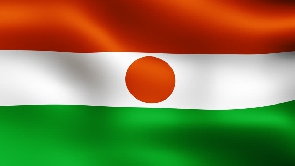The current situation in Niger has raised concerns, particularly with the activation of the standby force by ECOWAS for potential intervention. This move, however, has sparked criticism for being reckless and poorly thought out. Many believe that any military action in Niger could lead to disastrous consequences for the entire West African region. There's a fear that the country might suffer a fate similar to what happened in Libya and Syria – being torn apart by internal conflicts and external interventions.
Critics argue that the leaders of ECOWAS nations are far from effective. Most of these leaders are in their late 70s or 80s and seem more focused on protecting their own interests than genuinely caring for their people. The prevalence of corruption in countries like Ghana, Nigeria, and Cote d'Ivoire has only fuelled concerns about potential military takeovers. It's suspected that these old and seemingly clueless governments are trying to signal a strong stance against any potential coup within their own borders, rather than genuinely upholding democracy or the well-being of Niger's population.
Interestingly, the Western countries appear to be wary of losing their strategic influence in the region, rather than being driven by a genuine commitment to democracy. France, in particular, has historically exerted control over its former colonies, benefiting from economic exploitation.
The African Union (AU) and ECOWAS have so far failed to break these francophone countries free from France's grasp. This raises doubts about their ability to intervene militarily to safeguard democracy, especially given the longstanding lack of true sovereignty in these nations.
Observers have raised scepticism about the true intentions behind any potential military action endorsed by ECOWAS, suspecting that Western powers may back such a move to maintain their foothold in the region and continue their exploitation of Africa. War, unfortunately, often becomes a lucrative business for the West. Many suspect that the ECOWAS heads of state might be manipulated as puppets to perpetuate corrupt governance and protect the interests of external powers.
The youth in the region, however, seems to be awakening to these dynamics. The younger generation is growing increasingly vocal and aware of the issues at play. The decision-makers within ECOWAS would do well to tread carefully, as they could face consequences from an empowered and informed populace.
Critics have also highlighted the irony in Nigeria's situation. While the country is considering intervening militarily in another nation, it has struggled to effectively address the Boko Haram insurgency within its own borders. This raises questions about the prudence of such a move when the domestic security situation remains unstable.
In conclusion, the situation in Niger, coupled with the potential ECOWAS intervention, has sparked valid concerns about the region's stability and the motivations behind such actions. While there are calls for upholding democracy, the underlying complexities, historical influences, and vested interests of both ECOWAS nations and Western powers cast doubt on the true intentions of these actions. It remains to be seen whether the voices of caution and reason will prevail over potentially reckless decisions.
Opinions of Tuesday, 15 August 2023
Columnist: Wisdom Aveh



















